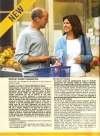Healthy Skepticism AdWatch
AdWatch illuminates the logical, psychological and pharmacological techniques used in drug advertisements.
There are AdWatch issues about advertisements published in the following countries:
The most recent AdWatch is:
 |
April 2010, USA: |
All AdWatch issues:
2010 April, USA: Wyeth’s Pristiq® (desvenlafaxine) for major depressive disorder
2009 October, USA: Amylin and Eli Lilly’s Byetta® (exenatide injection) for type 2 diabetes
2009 September, Italy: Lescol (fluvastatin) from Novartis
2007 August, Australia: Criticism of Adwatch on Avandia (rosiglitazone)
2007 June, Australia: Celebrex (celecoxib) from Pfizer
2007 March, Australia: Avandia (rosiglitazone) from GlaxoSmithKline
2006 December, Italy: Avelox (moxafloxacin) from Bayer
2006 September, Australia: Efexor Tetrapack (venlafaxine) from Wyeth
2006 July, Australia: Lipidil (fenofibrate) from Solvay/Fournier
2006 April, Australia: Estelle-35ED (cyproterone-oestradiol) from Douglas
2004 August, Australia: Feedback on Micardis Plus (telmisartan plus hydrochlorothiazide) from Boehringer Ingelheim
2004 June, Australia: Micardis Plus (telmisartan plus hydrochlorothiazide) from Boehringer Ingelheim
2004 April, Australia: Dialogue on Nexium (esomeprazole) from AstraZeneca
2004 March, Australia: Feedback on Augmentin (amoxicillin with potassium clavulanate) from GlaxoSmithKline
2004 February, Australia: Augmentin (amoxicillin with potassium clavulanate) from GlaxoSmithKline
2003 December, Australia: Feedback on Nexium (esomeprazole) from AstraZeneca
2003 October, Australia: Nexium (esomeprazole) from AstraZeneca


